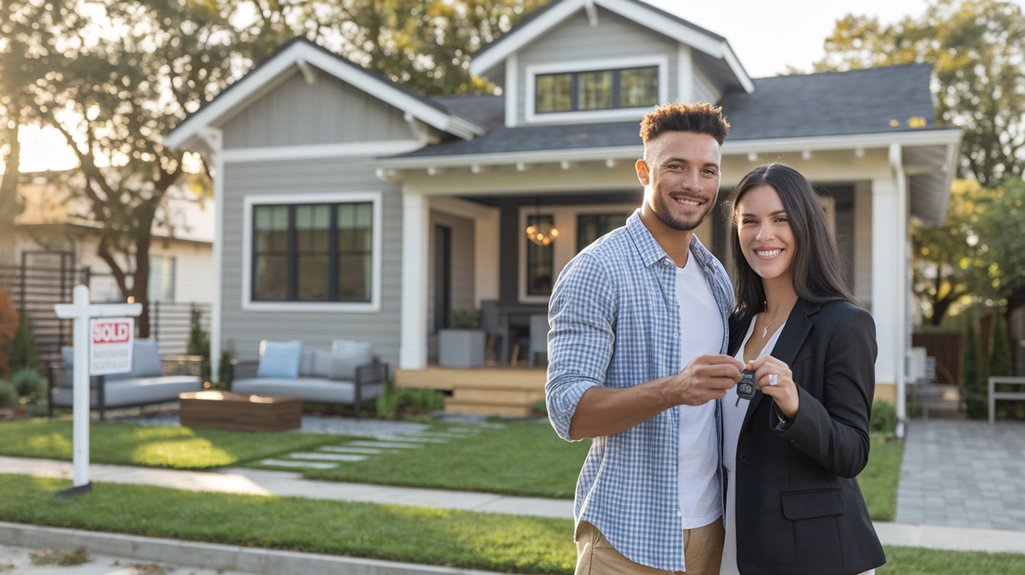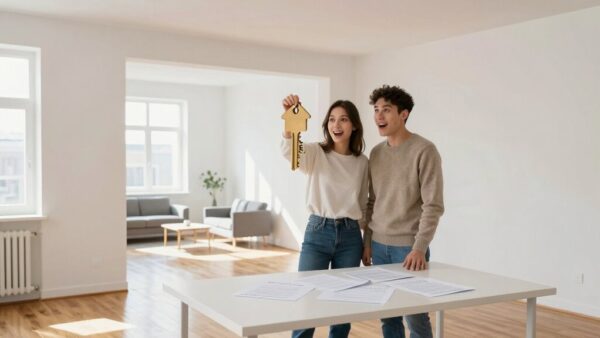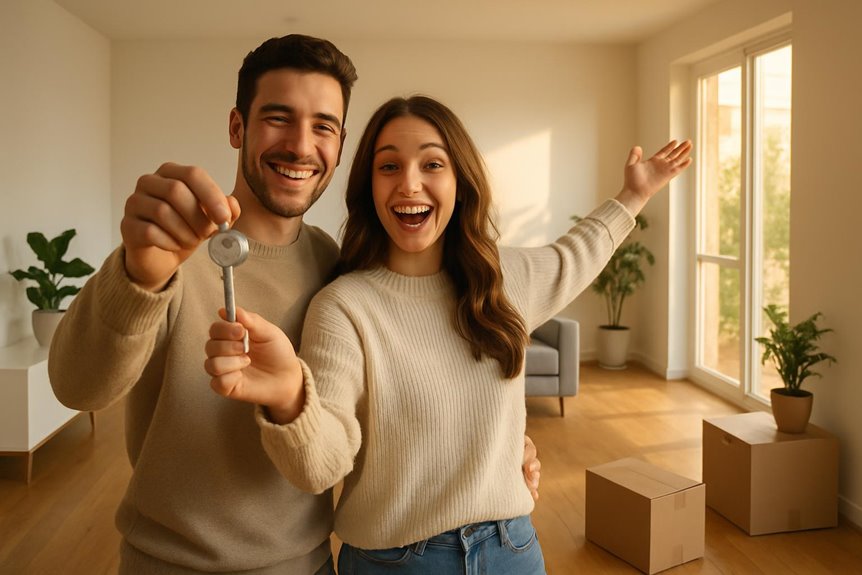Want to buy a home but don't have money saved up? You can get a special home loan that needs no money down. If you serve in the military, live in the country, or join a credit union, you might get one of these loans.
You need two things to get this kind of loan. First, you must have a good credit score – at least 620. Second, you must show you have kept a steady job.
These loans help you get a home fast. But they cost more money over time. You have to pay for extra insurance each month. The bank might also make you pay more in interest.
Before you pick this kind of loan, make sure you know all the costs. Look at what you have to pay each month. Then decide if this is the right way for you to buy a home.
Ready to start building equity in your own Michigan home? Get your personalized home loan quote today.
Types of Zero-Down Mortgage Programs
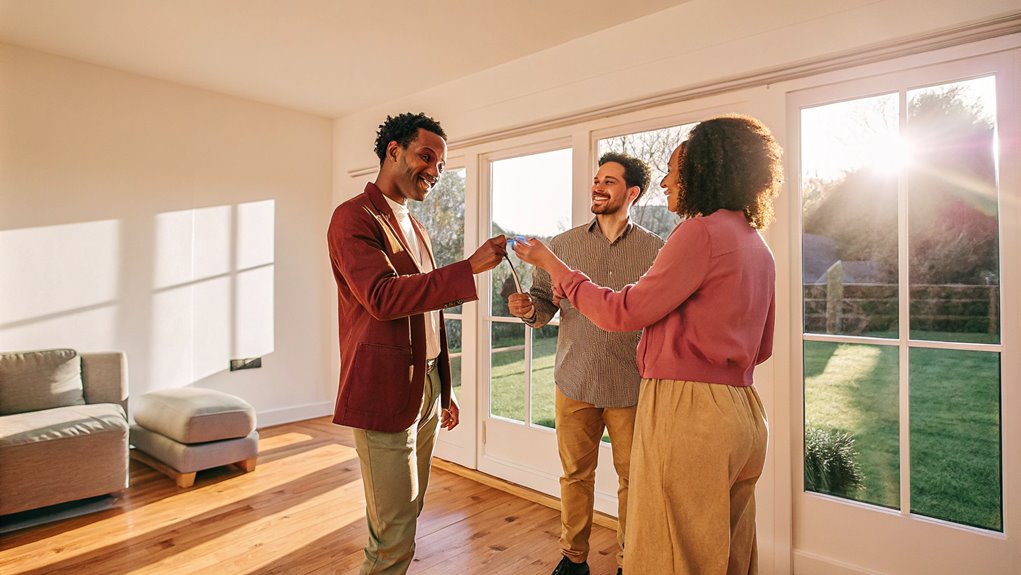
Getting a home with no money down is possible! You can choose from several loan types that help you buy a home.
If you served in the military, you can get a VA loan. These loans let you buy a house without putting money down first. The rates are good too.
If you want to live in the country, look into USDA loans. They help you buy a home in rural areas for no money down if you make under a certain amount.
Some banks called credit unions help their members buy homes with no money down. These loans can be easier to get than other loans.
There are also special programs in your state or city. These help first-time buyers and people who work in public jobs, like teachers.
If you're in the military or a veteran, Navy Federal can help you buy a house with no money down.
Remember: You still need good credit and proof that you make enough money. Some loans only work in certain areas too.
Michigan residents, unlock the door to your new home. Request your home loan quote from Treeside Financial today.
Qualifying Requirements and Eligibility
Getting a home with no money down means you need good credit scores between 580 and 640.
You must show you make enough money each month to pay your bills. The bank needs to know you can handle the house payments along with your other bills.
These loans work best when you plan to live in the home. Some types of homes, like mobile homes or buildings with many units, mightn't work with these loans.
You might be closer to buying your home than you think
Take our 2-minute home buyer readiness quiz to see how prepared you really are – no credit check required.

Credit Score and History
When you want to buy a home without a down payment, you need good credit. Think of credit as your money report card. Most home lenders want to see a credit score of at least 620.
Your credit needs to be clean. This means no late payments or money troubles in the past year. You should use less than 30% of your credit cards. Don't get new credit cards before you ask for a home loan.
If you served in the military, you might get a loan with a lower credit score. But you still need to show you pay your bills on time.
The better your credit score is, the less money you'll pay each month for your home.
Income and Debt Ratios
Your income and job history matter when you want to buy a home with no money down. Banks need to make sure you can pay your mortgage each month.
Banks look at how much money you spend on bills each month, like car loans or credit cards. They divide this by your monthly pay. Most banks want this number to be under 43%. Some let you go up to 50%.
You must show proof of steady pay. Most banks want to see you worked the same kind of job for two years. Your house payment should be less than one-third of what you make each month.
Don't forget about other costs that come with owning a home. You'll need money for lights, water, fixes, and maybe even fees to a homeowners group.
Property Type Restrictions
When you want to buy a home with no money down, you need to know what homes you can pick. You can only buy a house you'll live in. This means a single home, a townhouse, or a planned community home.
You can't buy homes to rent out or vacation homes.
The home must be in good shape too. Someone will check the home to make sure it's safe to live in and worth the money.
If you want a USDA loan, the home must be in the country. VA loans work anywhere, but the home must be good enough for the VA rules.
FHA loans let you buy homes with up to four units, but you must live in one of them. With FHA loans, you need to pay some money up front.
Benefits of Zero-Down Home Loans
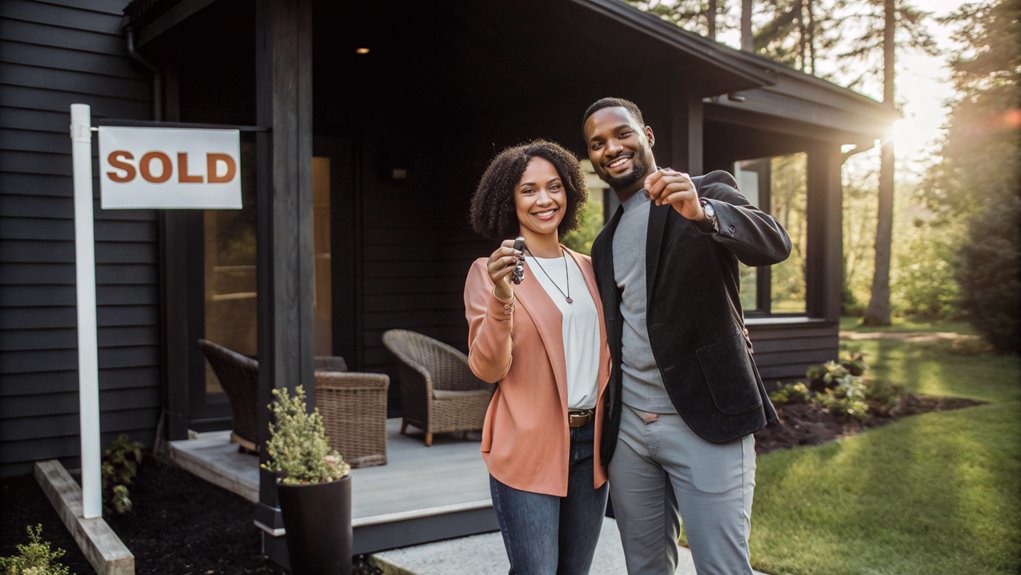
Buying a home without a down payment can help make your dream of owning a home come true. You don't need to wait and save up a lot of money first.
When you don't pay money upfront, you can keep your savings for things you might need. You can fix your house if something breaks. You can paint the walls or put in new floors. You can also save money for times when you need it most.
Getting into your home faster means you start owning more of it right away. Your house might go up in value, which is good for you. You can also use your saved money for other smart things, like paying off bills or trying other ways to grow your money.
Best of all, you can buy now if you find a good price and low interest rates, instead of waiting and maybe paying more later.
Hidden Costs and Fees
Getting a house without paying money first sounds great. But watch out – there are costs that banks don't tell you about right away. You need to know about these extra costs before they surprise you.
Banks will make you pay more each month for things like:
- Insurance to protect the bank (PMI) – adds 0.5% to 2.25% monthly
- Higher interest rates – adds 0.25% to 1% more monthly
- Closing costs – 3% to 6% of your loan, paid at the end
You also have to pay for people to check the house, look at papers, and set up your loan.
Since you don't pay money up front, you end up paying more each month. You also pay more money over time.
Before you get this kind of loan, think about all these extra costs. Make sure you can really pay for them each month.
Interest Rates and Monthly Payments
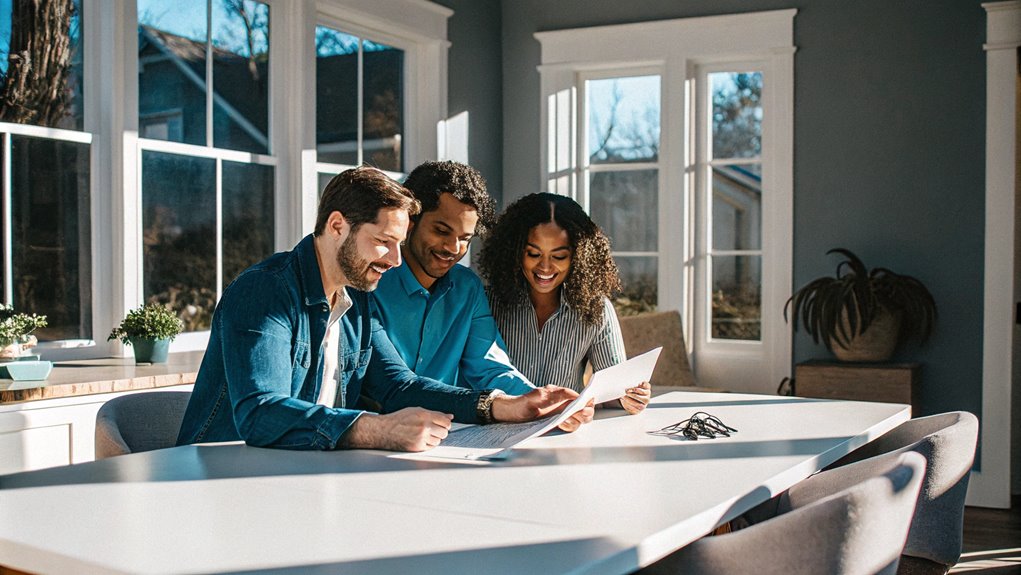
Getting a home with no money down means you'll pay more each month. This is because banks see it as risky when you don't put money down first.
Before you pick this type of home loan, think about:
- Your monthly bill pays for the house, extra costs, and home tax
- The high rates mean you spend more money over time
- You must show you can pay the big monthly bills
- If you get a loan where rates can change, your bills might go up a lot
- You need to wait longer to get a new loan with better rates
Look at what you can pay each month.
Make sure this type of loan fits your money plans and what you can spend.
Risks and Potential Drawbacks
You'll pay more money each month with a zero-down home loan than if you put money down first.
This is because you need to pay for the whole house plus extra insurance.
If home prices drop, you might end up owing more than your house is worth.
This can make it hard to sell your house or get a new loan later.
Higher Monthly Payments
When you get a home loan without putting money down first, you'll pay more each month. Think of it like buying a TV – if you don't pay anything up front, your monthly bill will be bigger.
Your monthly payments are higher because:
- You're borrowing all the money for the house
- You pay interest on the whole amount right away
- You need special insurance until you own 20% of your home
- The bank charges more interest since they're taking a bigger risk
- Your payment also covers your taxes and home insurance
With these bigger payments, you might find it harder to save money or handle surprise costs.
Make sure you can fit these payments into your budget before you choose this type of loan.
Negative Equity Risks
When you buy a home without paying money upfront, you take a big risk. You start with no ownership in your home. If home prices go down, you could end up owing more money than your home is worth. This is like being stuck in a hole you can't climb out of.
Think about what happens if you need to sell your home when prices are low. You might've to pay extra money just to sell it. You also can't use your home like a piggy bank when you need cash for big problems.
Many people who bought homes with no money down in 2008 lost their homes when prices dropped. They couldn't sell or get help because they owed too much.
Alternative Low Down Payment Options
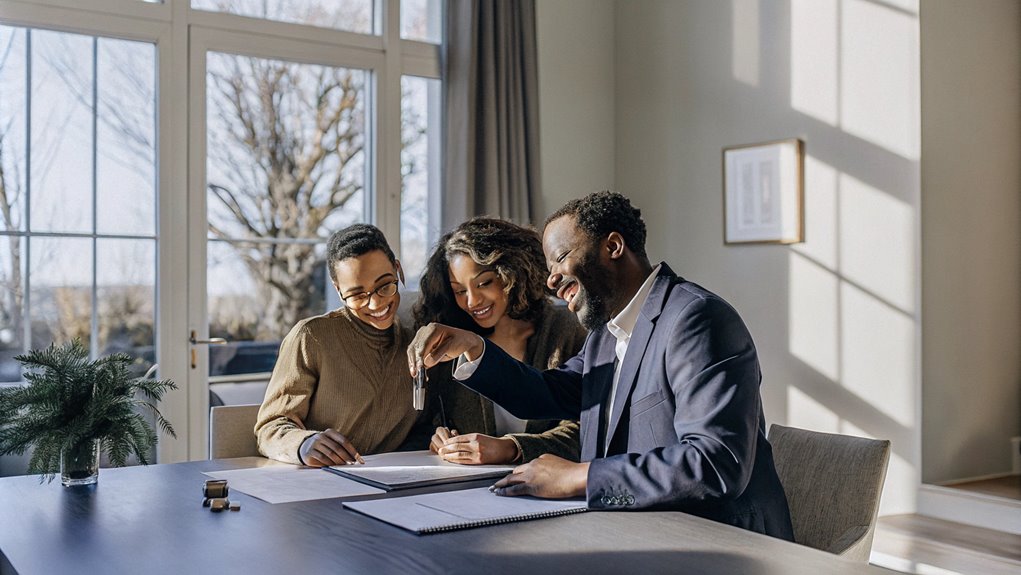
Want to buy a home without saving lots of money first? You have many choices!
You can get a home with a small down payment:
- FHA loans: Pay just 3.5% if you have good credit
- Regular loans: Pay 3% if you qualify
- VA loans: Military members pay nothing down
- USDA loans: No money down for homes in small towns
- Special loans: Pay 3% if you make less money
Before you pick a loan, look at:
- How much you'll pay each month
- What the interest rate is
- If you need extra insurance
These loans can help you get into a home faster. Just make sure you can handle the monthly bills.
Tips for Success
Getting a home with no money down is a lot like making a plan for a big trip. You need good credit – think of it as your ticket to ride. Your credit score should be at least 620. You also need a steady job to show you can pay your bills.
Keep your debts small. If you make $100, try not to owe more than $43 in monthly bills. Pay off what you can. Don't get new credit cards right now.
Put some money in the bank for costs when you buy the home. These costs are about $2-5 for every $100 of your home price. Also save extra money for times when big bills come up.
Talk to a helper who knows about homes. They can show you what to do. Keep all your pay stubs and work papers safe. Be ready to tell the bank about any time you didn't work or any big money that went into your bank.

